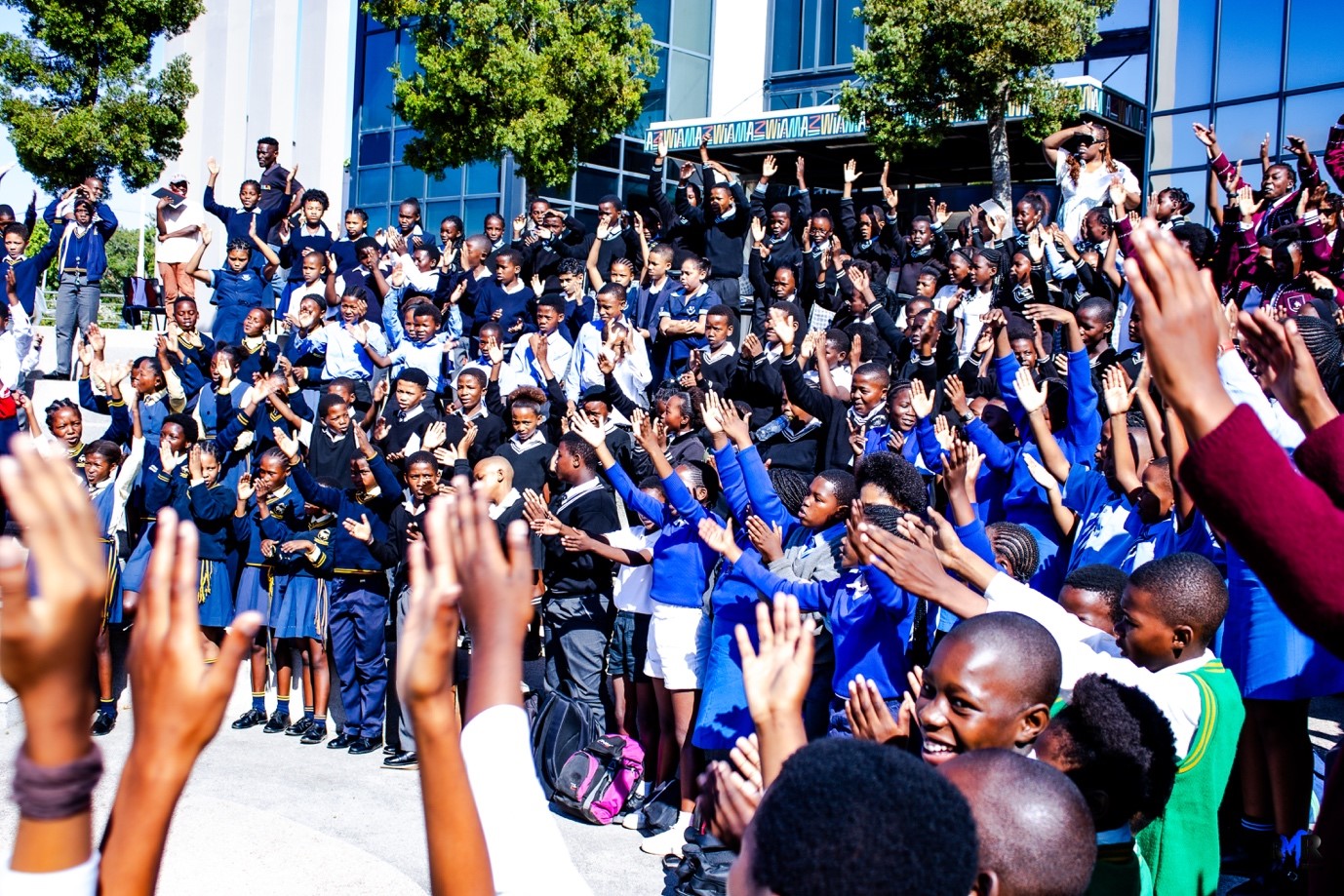By Ayabonga Kosi
In a vibrant celebration of cultural diversity and the power of literature, the PUKU Festival, founded by South African writer and activist Elinor Sisulu, recently took centre stage in towns across the Sarah Baartman region. The festival, dedicated to commemorating World Mother Tongue Day and paying homage to the literary contributions of Dr Sindiwe Magona, unfolded with a resounding call for the importance of reading, particularly in one’s mother tongue.
Addressing a young, captivated audience, various speakers highlighted the importance of children finding a love for reading and storytelling. Eager to assist in this regard, initiatives like the PUKU Foundation and Festival aim to cultivate a passion for reading in young minds.
Zoleka Kate, the principal of Fikizolo School, stressed the significance of the role language plays in instilling respect in children, emphasising the duty individuals have to preserve and cherish their native languages.
“Everyone has a mother tongue, and how you were raised shows in how you speak,” Kate explained.
Speaking about the children’s reading performances, she also alluded to an alarming trend of children reading without proper understanding, especially in their mother tongue. Kate said: “A study done in 2022 showed our grade 4 kids cannot read with comprehension.”
The children then were divided and delved into the art of storytelling, exploring the reasons behind narratives and the invaluable lessons they impart at different exhibitions. Attendees gained insights into the life and work of Magona, discovering her remarkable journey as she penned a book in her 50s and multiple more through the years. They got to experience the insight of some of her books and the multitude of genres she’s written. They also celebrated her multiple PhDs.
The jubilant atmosphere resonated with the enthusiasm of the young participants, who eagerly engaged in singing and embraced the opportunity to absorb the wealth of knowledge presented throughout the day.
Dr Mila Fobe, a distinguished figure with a PhD in Language Education and a teacher at CM Vellem Higher Primary School, shared her expertise on the critical role of learning in one’s home language. Fobe emphasised that a strong foundation in a native language forms the basis for a seamless transition to learning in English. She said: “Pronouncing words correctly and reading fluently are skills honed through early exposure to one’s mother tongue.” She explained that home languages, no matter the language, must be taught by individuals deeply connected to the language and its culture.
Grocott’s Mail also spoke to the education officer of the Amazwi South African Museum of Literature, Nozipho Madinda. She talked about the background of the relationship between the museum and the PUKU Foundation. Madina stated that PUKU initially partnered with Rhodes and the National Arts Festival and then forged a transformative alliance with Amazwi in 2018. This partnership facilitated the creation of a unique festival experience specifically designed to encourage youth from local schools to delve into books, particularly in their mother tongue. “The relationship between PUKU and Amazwi is important to promote reading and storytelling amongst the youth,” she said, adding that “it is even more important that the stories they read are told in their mother tongue”. This greatly emphasised the importance of the day.
The past two days of the festival encapsulated a collective commitment to nurturing a generation of avid readers who appreciate the written word and understand its profound cultural and linguistic dimensions.
As the echoes of songs and laughter filled the air, the PUKU Festival left an indelible mark, inspiring children to embark on a literary journey that starts with their roots and extends to the boundless realms of knowledge waiting to be explored.


